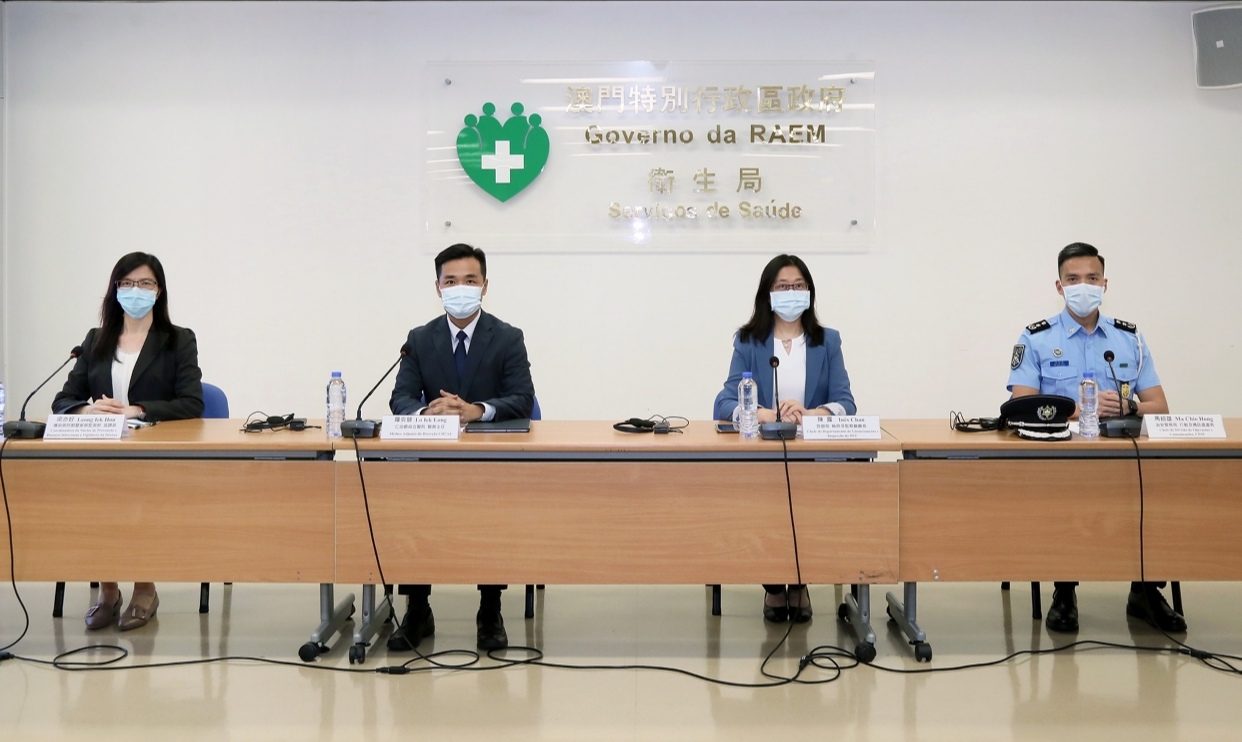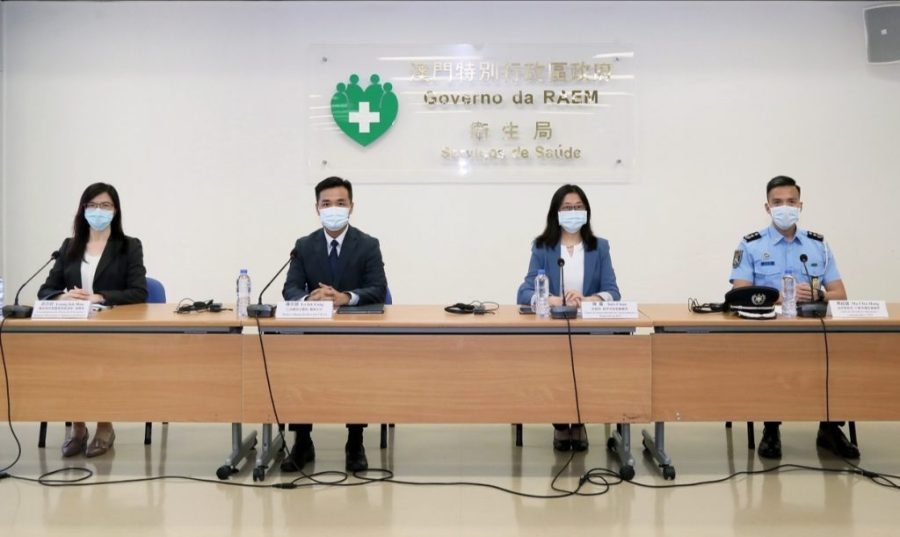Addressing Wednesday’s press conference about Macau’s novel coronavirus (COVID-19) situation, Alvis Lo Iek Long, a clinical director of the public Conde S. Januário Hospital Centre, announced that the opening hours of the Taipa Ferry Terminal nucleic acid testing (NAT) station in Pac On will be reduced to between 10 a.m. and 7 p.m. daily from today, from the previous opening hours of 9 a.m. to 9 p.m.
Lo said that the government had decided to reduce the opening hours of the Pac On testing station as only a small number of people have recently made appointments for nucleic acid tests during certain hours of the day.
Lo underlined that the opening hours of the Pac On testing station are subject to further adjustments in the future depending on possible changes in people’s need for the tests.
Lo also said that the opening hours of the new NAT post at the public hospital, which opened on Monday, will remain unchanged at between 9 a.m. and 5 p.m. daily.
Starting from this Monday, four groups of local residents can also choose to undergo their nucleic acid tests at the new testing post, which is located on the former premises of the Paediatric Joint Assessment Centre at the public hospital, under the local government’s current NAT scheme, in addition to choosing to undergo the tests at the programme’s main testing station in Pac On.
The four groups covered by the new measure are senior citizens aged at least 65, minors aged 18 or below, people with disabilities, and those suffering from “special diseases” – namely infectious diseases, drug addiction, tumours, and psychiatric diseases.
NAT is a technique used to detect a particular nucleic acid sequence and thus used to detect and identify a particular species or subspecies of organism, often a virus or bacteria that acts as a pathogen in blood, tissue, urine, etc. NAT differs from other tests in that it detects genetic materials (RNA or DNA) rather than antigens or antibodies.
According to previous official announcements, the government launched on May 7 a NAT scheme for Macao residents who live in Zhuhai and work in Macao (with a Zhuhai residence permit), and Macao pupils and teachers who live in Zhuhai or Zhongshan. The testing was extended from the next day to other Macao residents who need to cross the Macao-Zhuhai border checkpoints but do not hold a Zhuhai residence permit. The scheme was later extended to mainland non-resident workers who are eligible for the new exemption measure – which has been implemented since May 11 – from the 14-day quarantine requirement between Macao and Guangdong.
According to the previous announcements, the scheme was extended from May 14 to mainlanders who have entered Macao with a business visit permit, a permit for visiting relatives, or a travel permit for official purposes, or mainlanders who have entered Macao using their passport. The tests have a validity of seven days. The first test is free of charge for all Macao residents and non-resident workers, but follow-up tests will cost 180 patacas each. However, mainland visitors have to pay 180 patacas for each test – no fee exemption even for the first test. Cross-border pupils and teachers are exempt from the fee.
The Macao government has reaffirmed that having undergone a nucleic acid test does not mean that the person will then be exempted from the current 14-day quarantine measure imposed by Guangdong, pointing out that the Guangdong provincial government has not changed its measure in this respect.
During Wednesday’s press conference, Lo said that the local government’s NAT scheme has now also been open to all other non-locals who are in Macao, such as Hong Kong residents. Lo said that the local government has decided to allow all those who think that they need to be tested for COVID-19 to make an appointment for a nucleic acid test because only 1,000 or so tests have been carried out at the Pac On testing station every day since the launch of the scheme.
The Health Bureau (SSM) can test up to 6,000 people per day under the NAT programme, which is carried out in collaboration with a third party testing institution – Kuok Kim (Macau) Hygiene Examination Company Limited.
Lo reaffirmed on Wednesday that “people have to be clear whether they are exempted from the [14-day] quarantine requirement by Zhuhai” before deciding whether to undergo a nucleic acid test in Macao. Lo said that undergoing a nucleic acid test is of little use if the person is not exempted from the quarantine by Zhuhai.
No new cases in 49 days
Meanwhile, Lo also pointed out that Macau has not confirmed a new COVID-19 case for 49 consecutive days. All of Macao’s 45 COVID-19 patients have been discharged from hospital.
Lo said that five discharged patients are still undergoing their 14 days of recovery period isolation at the Health Bureau’s Public Health Clinical Centre in Coloane.
400 students want to return home
Meanwhile, Inês Chan Lou, who heads the Licensing and Inspection Department of the Macao Government Tourism Office (MGTO), said during Wednesday’s press conference that the local government aims to roll out measures in the second half of next month to help local residents studying overseas to return to Macao.
Chan said that the government has noticed that many local students enrolled overseas want to return to Macao for their summer break. She said that according to data from the Higher Education Bureau (DSES), some 400 students enrolled in some 30 countries hope to return to Macao, most of them wanting to come back in the second half of next month.
Chan underlined that the government can only announce the measures after they have been fully prepared. She said that if the government announces measures that are still under study, it would create confusion.
Chan also said that Macao’s public health system was well prepared to tackle a possible new wave of the novel coronavirus disease resulting from local students enrolled overseas returning to Macao.
Chan also said that while the government was unlikely to airlift them back to Macao by chartered planes, it does not rule it out as a possible option. Chan underlined that the government is studying every possible way to get them home.
(The Macau Post Daily/Macau News)
PHOTO © Government Information Bureau (GCS)






